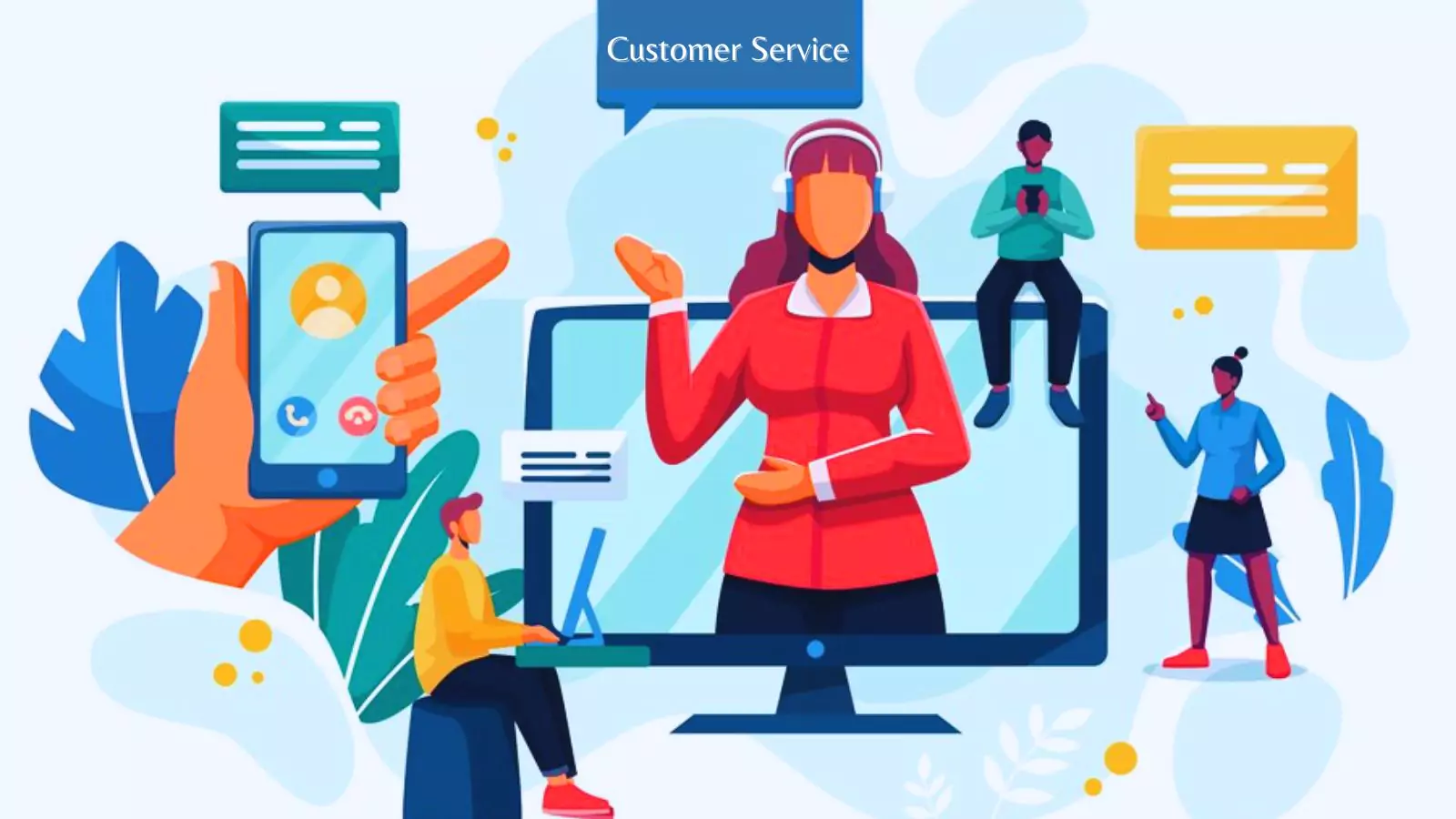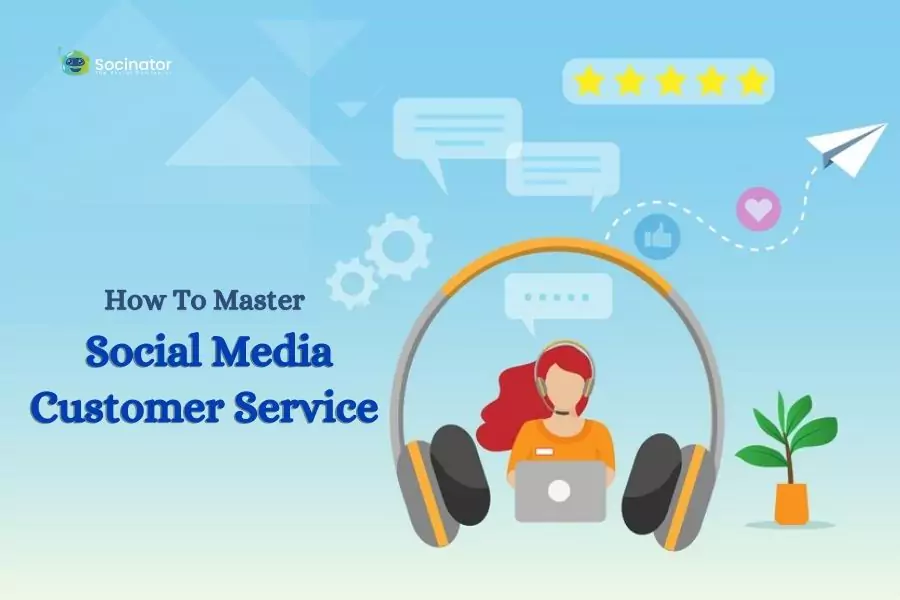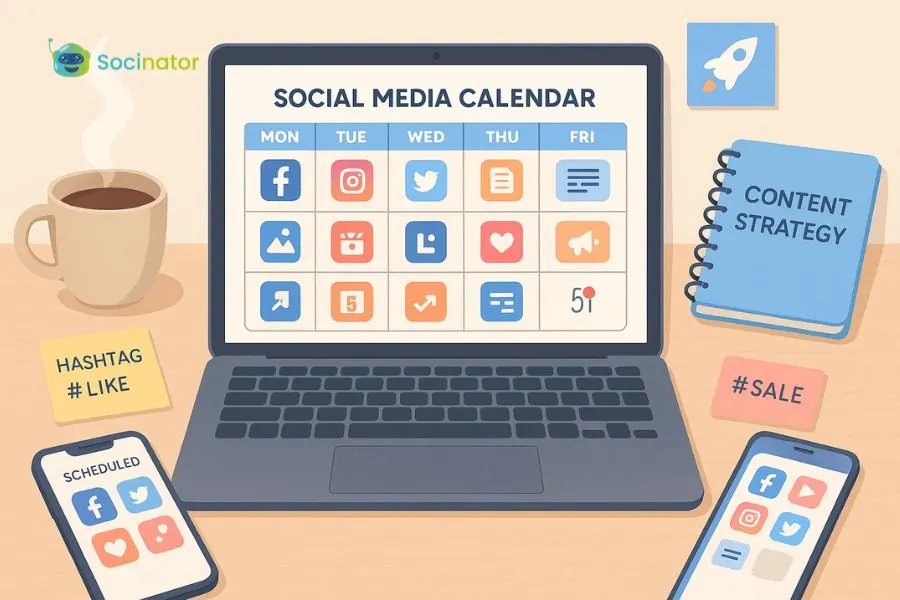In an era that’s constantly buzzing with tweets, likes, and shares, the significance of social media in customer service cannot be overstated. Whether you’re a small business owner or part of a large corporation, understanding how to navigate the complexities of social media customer service is crucial for building and maintaining a positive brand image.
In this blog, we’ll unravel the secrets behind providing stellar customer support in the digital landscape.
We’ll break down the essentials in simple terms, offering practical tips and insights to help you turn every interaction into a positive and memorable customer experience.
So, let’s dive in and discover the key to making your brand shine on social media!
Hit ‘Play’ Button & Tune Into The Blog!
What Is Social Media Customer Service?
Social media customer service is about helping customers through your social media channels, starting from when they have a question or complaint to finding a solution. To make it work, you need a plan with support reps who are ready to respond to complaints, answer questions, and address concerns on social media.
Doing social media customer service isn’t random; it needs to happen regularly. If you only reply to a few things here and there, it might make you look inconsistent or unprofessional. Your plan should help you solve problems, provide support, make customers happy, and build a positive brand image on social media. To make it work, you need a plan with support reps who are ready to respond to complaints, answer questions, and address concerns on social media. Implementing a social CRM system can further streamline this process by tracking interactions and maintaining customer history across platforms.
Why Social Media Is Crucial For Customer Service Today?
 In recent years, social media has become a big deal for how businesses talk to their customers. Here are a few reasons why using social media is super important for giving great customer service.
In recent years, social media has become a big deal for how businesses talk to their customers. Here are a few reasons why using social media is super important for giving great customer service.
- Reaching Everyone: Social media lets your business talk to people from all over the world. It breaks down borders and helps you connect with lots of different people.
- Quick response: Unlike old-school ways of talking, social media lets you talk to customers right away. This means you can answer their questions fast and build a good relationship with them.
- Getting Noticed and Liked: If your business is on social media, more people can see it. It’s not just about being seen, though. It’s also about showing that your business cares about making customers happy. When customers share good experiences on social media, it makes your business look even better.
- Learning from Customers: Social media is like a gold mine of info about what your customers think. By looking at what they say on social media, like feedback or complaints, you can reflect on it. This helps your business improve and offer better things.
Sure, there are a lot of social media channels out there. Keeping up with what customers say on all of them can be tough for businesses. But using smart tools, like ones that use fancy tech like AI, can make it way easier for businesses to listen and respond to what customers are saying on social media.
Tips to create an effective strategy for social media customer service
Creating a successful social media customer service plan? Here are some practical tips for social media strategy:
Know where your customers are:
Figure out which social media customer service platform your customers use the most. You can do this by checking- where you get the most questions or mentions.
Be clear about when you’re available:
Tell your customers when your support team is ready to help. While big companies aim for 24/7 support, it might not be possible for smaller businesses. Mention your support team’s working hours in your bio, and don’t forget to include the time zone.
Use smart tools:
Enhance your customer sentiment analysis for improved business outcomes by employing intelligent solutions like Socinator, an automation tool engineered to monitor mentions and evaluate customer sentiment across social media posts.
Leveraging such tools empowers your team to swiftly identify and comprehend customer feedback, enabling prompt responses to pressing inquiries.
Deal with issues privately:
Not all conversations on social media are positive. A long back-and-forth between your team and an unhappy customer can cause problems. Some problems might also need to be discussed in private. Train your team to move these conversations to a more secure platform.
Train your team well:
Ensure your customer service team is equipped with training in handling customer conversations effectively, both on social media and other platforms. Provide comprehensive instruction on your products or services, customer service best practices, social media crisis management, and communication skills.
Empower them with the knowledge and tools, including AI assistance, to address inquiries efficiently and switch platforms if necessary for better resolution.
Keep your brand voice consistent:
To be great at social media customer service, make sure all your responses and interactions have the same tone and style. It helps in maintaining a strong and recognizable brand image.
Implement Automation:
Leveraging automation tools and chatbots to manage routine inquiries, provide instant responses, and prioritize incoming messages. By integrating these technologies, workflows can be streamlined, response times improved, and human resources allocated more effectively towards addressing complex issues.
Social media automation tools are applications or platforms designed to streamline and enhance various aspects of social media management. These tools aim to help businesses and individuals effectively plan, execute, and analyze their social media strategies. Among these tools is Socinator, a comprehensive social media automation tool designed to assist users in managing and growing their online presence across multiple platforms.
Socinator: Social Media Marketing Tool
 Socinator streamlines social media management tasks, helping businesses maintain a consistent online presence and engage with their audience effectively. It offers automation solutions for various platforms, enabling users to save time and resources while maximizing their marketing strategies.
Socinator streamlines social media management tasks, helping businesses maintain a consistent online presence and engage with their audience effectively. It offers automation solutions for various platforms, enabling users to save time and resources while maximizing their marketing strategies.
It offers a range of features to simplify social media tasks, such as scheduling posts, automating interactions, managing multiple accounts, and analyzing performance metrics. With Socinator, marketers can save time and effort by automating routine activities, ensuring a consistent online presence, and optimizing engagement with their target audience.
For social media customer service, businesses typically use tools that allow them to monitor social media mentions, respond to customer inquiries, and manage customer interactions effectively.
As an integral part of the social media marketing toolbox, Socinator contributes to efficient content management, audience engagement, and data-driven decision-making. Social media manager can leverage these tools to enhance their social media marketing efforts and achieve their business goals more effectively in the dynamic landscape of online platforms.
Also Read:
How To Improve Your Customer Sentiment Analysis For Better Business?
Why Does A Business Need a Social Media Manager ?
5 Effective Customer Engagement Strategies For 2024
9 Social Media Management Tips To Save Time & Improve Productivity
Digital Customer Service: The Ultimate Guide For 2025
What Is the Importance Of Social Media Marketing For Small Business?
Social media marketing plays a crucial role in the growth and success of small businesses. Here are some key reasons highlighting the importance of social media marketing for small business:
Enhanced Visibility and Reach:
Social media platforms provide a global stage for small businesses to showcase their products or services, reaching a wider audience beyond geographical constraints.
Cost-Effective Advertising:
Social media advertising offers a cost-effective alternative to traditional marketing channels, allowing small businesses to allocate resources efficiently and achieve targeted results.
Direct Customer Engagement:
Employing effective customer engagement strategies entails utilizing social media to directly engage with customers, fostering interactions, cultivating relationships, and obtaining valuable feedback.
Competitive Edge and Brand Building:
A strong social media presence helps small businesses stand out in a crowded market, building brand authority-credibility and establishing a unique identity.
Adaptability and Real-time Interaction:
Social media enables small businesses to adapt quickly to market trends, respond in real time to customer inquiries, and stay agile in an ever-changing business environment.
Social media marketing is an invaluable asset for small businesses, offering cost-effective advertising, direct customer engagement, and the ability to build a strong online presence. It provides an opportunity for growth, increased brand awareness, and a competitive edge in today’s digital landscape.
Wrapping Up
Mastering social media customer service is all about creating meaningful connections with your audience. By being responsive, empathetic, and proactive- you can build trust and loyalty- among your customers.
Social media customer service is a continuous journey, and utilizing social media marketing tools like Socinator can be a game-changer in ensuring seamless and successful customer interactions on social platforms.
Stay updated on trends and tools to enhance your customer service strategy. Ultimately, by prioritizing the customer experience on social media, you can turn challenges into opportunities and create a positive impact on your brand’s reputation.






